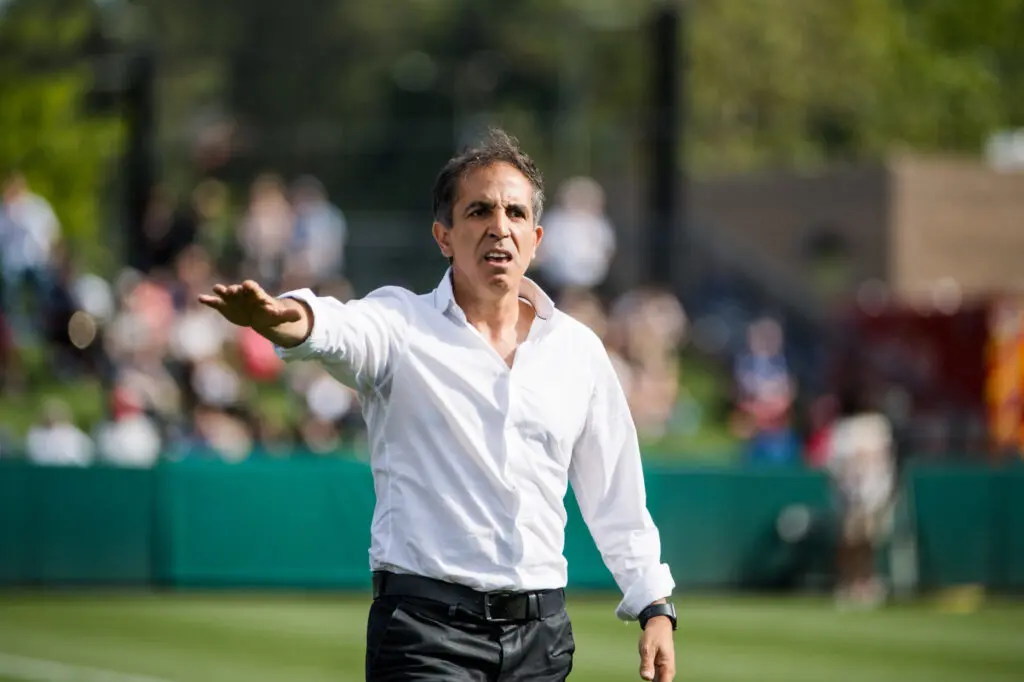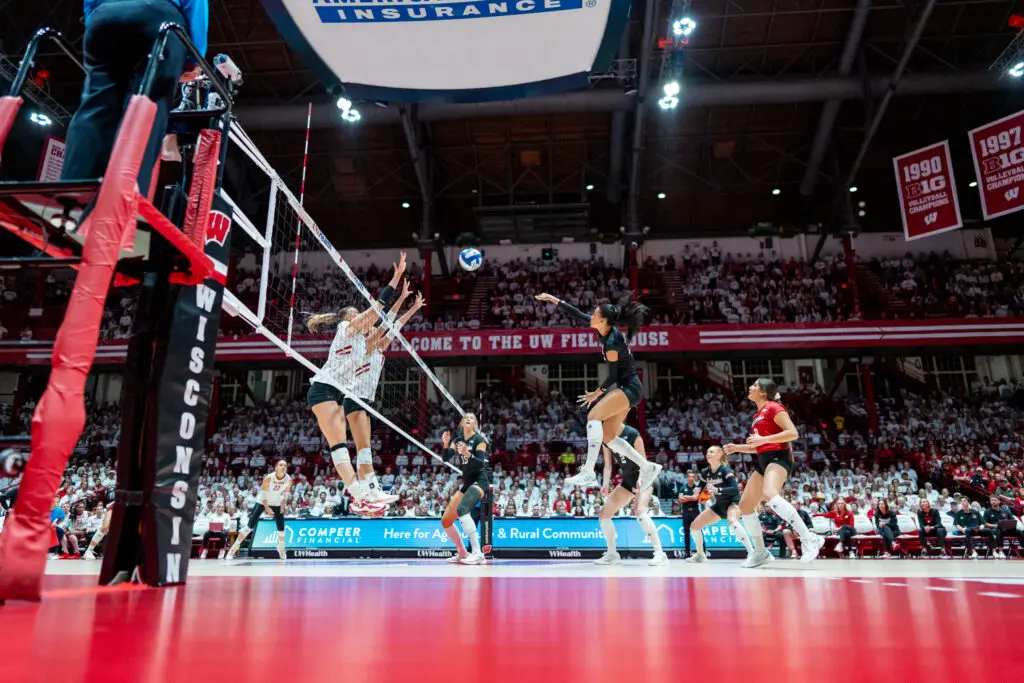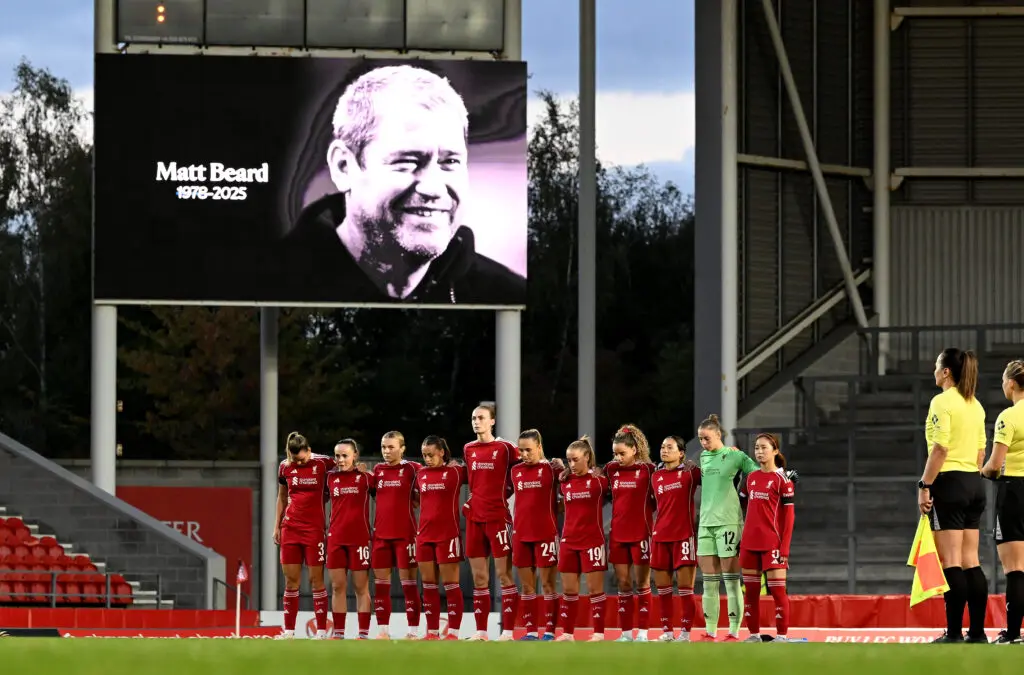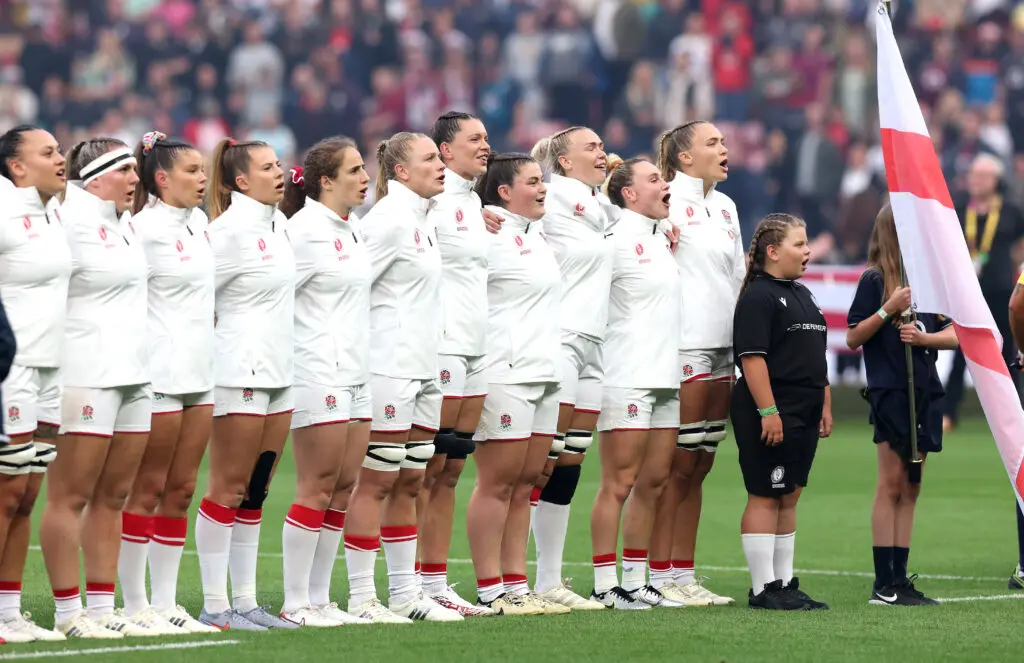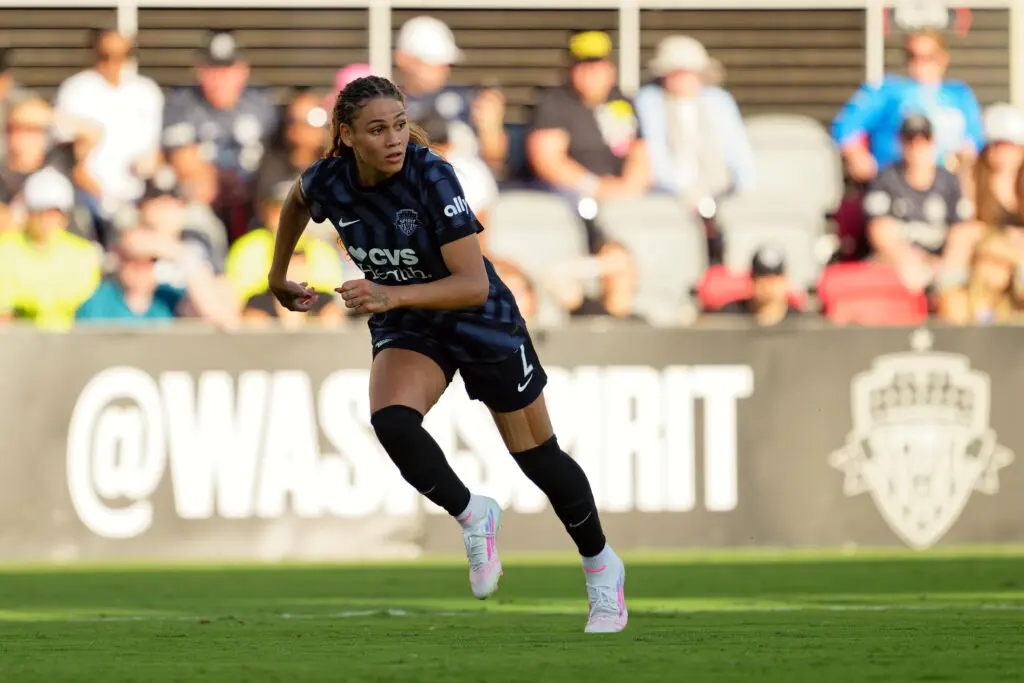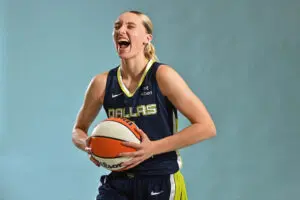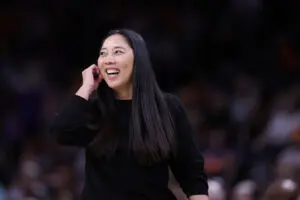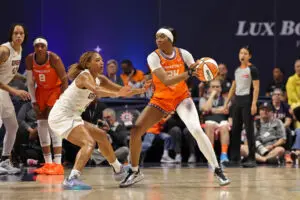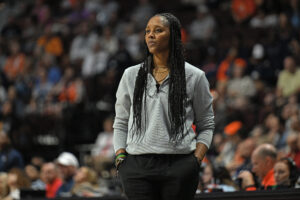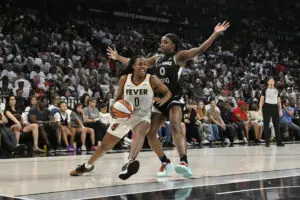When the NWSL and the NWSLPA released their joint investigation Wednesday into widespread abuse and misconduct throughout the league’s history, a point not made as extensively in October’s Sally Q. Yates report stuck out: weight-shaming.
In sports, bodies are constantly on display and uplifted for excellence. But the NWSL report details how obsession over weight, especially by those seeking excessive control over their players, opened up avenues for harm without systemic recourse.
Fitness and nutrition are intrinsically tied to sports performance, but in the case of misconduct in the NWSL, the logic for targeted weight-shaming became arbitrary and frequently tied to the way players looked rather than how they played. Coaches then used the perception of a player being overweight to target them for harassment, “even if their strength and fitness levels were on par with their teammates,’ and even if the coach lacked the expertise to make such judgments,” per the report.
Former OL Reign coach Farid Benstiti’s reputation for weight-shaming was not a secret. USWNT midfielder Lindsey Horan spoke openly about her time playing for Benstiti at Paris St-Germain and how he prioritized looks over performance. On Angel City midfielder Cari Roccaro’s podcast, Horan described how Benstiti told her she weighed too much even though she had excelled at preseason testing. Being pushed into excessive dieting affected Horan’s energy levels, adversely influencing her life both on and off the pitch.
Former OL Reign CEO Bill Predmore said in the NWSL report that Benstiti had already signed his contract with the club when he became aware of Horan’s concerns, but the report states internally that he ‘considered the issue a “cultural thing” and that [Benstiti] “worked on it.” Predmore also defended the decision publicly. In a conversation upon Benstiti’s hiring with Sounder at Heart, Predmore said, “I really do believe he is somebody that shares and embodies — and will live up to — the values we have as an organization. I think fans will find he’s a much more warm and inviting person than how he’s being portrayed right now.”
But according to the NWSL investigation, Benstiti could not stop himself from continuing his preoccupation with food despite being expressly forbidden from touching the subject. One player reported that Benstiti told players, “If I see you eat snacks, I will kill you.” Another player said that, during the 2020 Challenge Cup, Benstiti was “already hiding food under the table he didn’t want girls to eat.” She also said that Benstiti “was always commenting on food and women and their weight.”
Crossing lines with weight commentary is likely pervasive in sports regardless of gender, but the peculiarity of Benstiti’s preoccupation with women and their weight underlines how gendered norms can exacerbate these issues. This also allowed concerns to be neglected as cultural differences.

In the case of former Thorns and Courage coach Paul Riley, the investigation showed how harassment over players’ weight could create a power dynamic that led to sexual harassment. According to the NWSL report, Riley used player weight as a strategy for “breaking down [a player’s] confidence, saying she doesn’t look fit,” in order to build the player back up in his own image.
Riley began his harassment of former Thorns player Mana Shim with comments about her weight before becoming more aggressive in his advancements, per the report. He drove defender Kaleigh Kurtz to develop an eating disorder, for which she said she later pursued professional help. She told investigators that she “identified his conduct towards her as abusive, and realized that he had been ‘grooming’ her for sexual abuse.” As outlined in the report, comments about weight were not simply part of a coaching style — in many cases, they were used as a tool for normalizing further abuse.
Former Houston Dash coach Vera Pauw was also accused of influencing eating disorders in her players, something the current Republic of Ireland coach staunchly denies. The report emphasizes Pauw’s preoccupation with the way her players looked, saying she was concerned about the team becoming too “bulky” and adjusted weight-lifting programs accordingly. She told the investigative team that a player had confronted her about a teammate developing an eating disorder, which she felt was the players’ responsibility to take care of as a group.
Fitness and nutrition are intrinsically linked to performance, and it is obviously within the bounds of a coach’s role to discuss those subjects in that context. But the NWSL acknowledged that it must take greater care in making sure the logic involved in those discussions is sound and not used for emotional manipulation.
The report states that if a coach has a legitimate health or fitness concern about a player’s weight, they need to bring that concern to a health professional first. Those concerns then need to be discussed privately and not weaponized against a player in settings among their teammates. The league’s 2022 Anti-Harassment Policy says that emotional misconduct may include “belittling players about their body image or weight,” especially when based on arbitrary criteria rather than sports science. The NWSL also plans to do extensive vetting of new hires that goes beyond basic background checks.
Claire Watkins is a Staff Writer at Just Women’s Sports. Follow her on Twitter @ScoutRipley.
